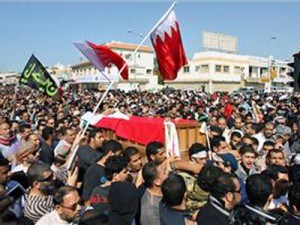C O N F I D E N T I A L SECTION 01 OF 02 RIYADH 001303
SIPDIS
E.O. 12958: DECL: 09/29/2009
TAGS: PREL PGOV SA SY LE TU
SUBJECT: ASAD’S VISIT: SAUDI-SYRIAN RAPPROCHEMENT BACK ON TRACK?
REF: A. BEIRUT 1079
¶B. RIYADH 1154
RIYADH 00001303 001.2 OF 002
Classified By: DCM Susan L. Ziadeh,
reasons 1.4 (B) and (D)
SUMMARY
——-
¶1. (C) Syrian President Bashar Al-Asad’s unexpected
attendance at the King Abdullah University of Science and
Technology (KAUST) opening, and his lengthy meeting with King
Abdullah on the margins, has encouraged speculation about
further Saudi-Syrian rapprochement and its potential regional
implications. Post contacts describe media reports of the
meeting as largely accurate, noting that Lebanese government
formation, Palestinian reconciliation, and Asad’s invitation
to King Abdullah to visit Damascus dominated the agenda.
They confirm that Turkish mediation played a role in bringing
about the visit, and suggest that the Saudis and Syrians now
have a clearer picture of one another’s expectations. While
the Saudi King has agreed in principle to visit Damascus, it
is still unclear how quickly this will come about or if
Lebanese government formation is a prerequisite, though
travel by a Saudi delegation to Beirut Sep 30 suggests this
may be the case. Contacts suggest the King will travel with
the newly-appointed Syrian Ambassador to Saudi Arabia, Mahdi
Dakhlallah within “the next few weeks.” END SUMMARY.
UNEXPECTED VISIT RAISES EXPECTATIONS
————————————
¶2. (U) Asad’s last-minute decision to attend the September
23 KAUST opening came as a surprise to almost everyone
involved. Press reports characterized the move as a clear
sign of continued Saudi-Syrian rapprochement and focused
heavily on its potential impact on the government formation
process in Lebanon. The official Saudi Press Agency
announced that the two leaders had discussed “major regional
and international developments,” without further specifics.
The Syrian Arab News Agency downplayed the meeting’s emphasis
on Lebanon, noting that “the relationship between Damascus
and Riyadh does not go through Beirut, and Syria and Saudi
Arabia agree that Lebanon,s affairs must be managed by the
Lebanese.”
ABDULLAH AND ASAD DISCUSS WHAT COMES NEXT
—————————————-
¶3. (C) According to contacts at the Egyptian embassy, the
media accurately reported details regarding the size and
nature of the meeting. King Abdullah, his son Prince
Abdulaziz, and Asad were the only individuals present, and
discussion of Lebanon and Palestinian reconciliation
dominated the agenda. The sides outlined specific, concrete
expectations they had for one another. With respect to
Lebanese government formation, King Abdullah asked Asad to
use his influence over his Syrian allies, and encourage Free
Patriotic Movement Leader Michel Aoun to abandon his
insistence on the Ministry of Transport and Communication
portfolio for Gebran Bassil. The King also urged Asad to
push harder on Hamas to reach an agreement on Palestinian
reconciliation in Cairo. For his part, Asad asked the King
to visit Damascus. The King reportedly agreed to the visit;
however, he did not indicate whether this visit was
contingent upon Lebanese government formation. Asad
reportedly promised the King a response to his requests,
which was delivered to Culture Minister Khoja via Syrian
information minister Mohsen Bilal on September 27. (NOTE:
The Saudi Press Agency reported that Bilal had delivered an
unspecified “invitation.” END NOTE.) While the timing of
any visit is still unclear, the Egyptians expect it will
happen “within the next few weeks,” and that he will travel
with newly-appointed Syrian Ambassador to Saudi Arabia,
former Information Minister Mahdi Dakhlallah. The Saudis
reportedly agreed to Dakhlallah’s appointment on September
26; he is expected to present his credentials at the earliest
opportunity.
¶4. (C) Meanwhile, notwithstanding protests from both sides
regarding the Lebanese angle, a Saudi delegation headed by
Mecca Governor Khalid Al Faisal travelled to Beirut for
meetings with Lebanese parliamentarians; unusually, the
delegation included Minister of State Abdulaziz bin Fahd, who
met with Sa’ad Hariri and President Michel Sleiman to convey
a message from King Abdullah. See ref A for details.
TURKISH CHARGE: WE MADE IT HAPPEN
———————————
¶5. (C) Turkish Charge Sadik Arslan told Poloff on September
RIYADH 00001303 002.2 OF 002
28 that reports of intense Turkish lobbying to convince a
reluctant Asad were true, and that the Turks had undertaken
these efforts by their own initiative. He also indicated
that Jordanian King Abdullah may have played a role, though
he did not mention any specifics. “It was during Eid, so
Asad was reluctant to come (to KAUST),” Arslan said, “but we
believed it was important and the Saudi-Syrian relationship
is essential.” Without a Saudi-Syrian agreement, he
continued, there was little hope that Lebanon could overcome
its government formation crisis. As for the rumored visit of
King Abdullah to Damascus, Arslan said, “we are hopeful that
this will happen very soon.” When pressed as to whether this
visit could be expected in days, weeks, or months, he
declined to speculate, adding only that he felt the current
atmosphere was “positive.”
COMMENT: BACK ON TRACK?
———————-
¶6. (C) Asad’s visit to the Kingdom is the latest in a series
of steps towards a fuller Saudi-Syrian rapprochement.
Whether the meeting will lead to the King visiting Damascus-
and whether this visit will become before, or after Lebanese
government formation- is still unclear. Saudi Ambassador
Abdullah Al-Eifan’s arrival in Damascus on August 25 was
confirmation that the Saudi-Syrian relationship was ready to
enter a new phase. However, Khoja’s remark to former Charge
d’Affaires a.i. Ambassador Erdman that the Saudis were “not
talking to the Syrians about Lebanon” (ref a) on September 1
suggested Lebanon was becoming an irritant to the process.
Asad’s visit, and the naming of a new Syrian Ambassador soon
afterwards, indicates the relationship may be back on a more
positive track.
SMITH



















